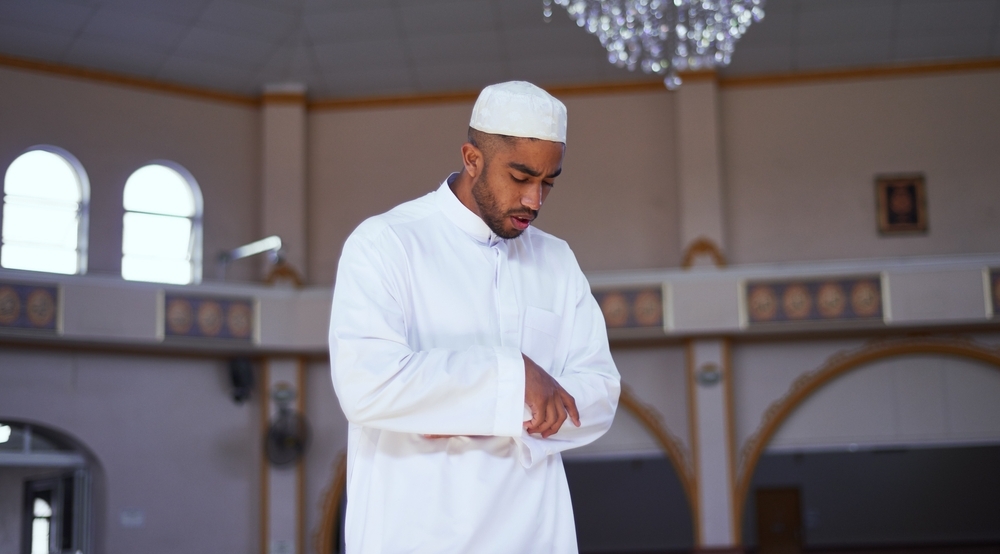What Is the Ruling of Pronouncing the Takbir at the Beginning of Prayer?
Hanafi Fiqh
Answered by Shaykh Yusuf Weltch
Question
If someone prayed salah every day from when he became baligh (reached puberty) until the end of high school (about 5-6 years) without starting each ṣalah in jama‘a by saying “Allah Akbar” to himself, will he have to make up all those years of prayers?
Answer
In the Name of Allah, the Most Merciful and Compassionate
If I understand your question correctly, you have been saying the opening invocation (takbir) silently, not loud enough for you to hear it.
The Necessary Volume of the Takbir
It is necessary for the takbir to be valid and that it is pronounced loud enough that one can hear it. This is the relied-upon position. [Shurunbulali, Maraqi al-Falah]
“So whoever whispers it or merely says it in their heart does not suffice. This ruling applies to all the statements of the prayer…” [Ibn ‘Abidin, Radd al-Muhtar]
However, considering that the above would entail great hardship. A secondary opinion may be taken as a disposition.
Secondary Opinion
Imam al-Karkhi (Allah have mercy on him) believes that the minimum extent for the validity of the takbir, like all other statements of the prayer, is to mouth the letters even if no sound is present. [Ibn ‘Abidin, Radd al-Muhtar; Tahtawi, Hashiya al-Tahtawi on Maraqi al-Falah]
Taking Dispensations to Avert Undue Hardship
In everyday situations, although permissible, it is not recommended to leave the more relied-upon position for a secondary position, even if the secondary position is valid. However, given the need in your case, taking the secondary opinion is advisable.
Cases of Necessity
From such cases are the following:
- Helping one suffering from misgivings and doubts (waswasa);
- preventing the obligation of making up many prayers (isqat al-qada’); this was the opinion of Shaykh Adib Kallas, as mentioned by Shaykh Faraz Rabbani, and is also understood from Imam Birgivi in his work al-Tariqa al-Muhammadiyya.
Note that dispensations such as this can only be given by an expert mufti or by the approval of an expert mufti.
Moving Forward
The above dispensation is only given to rectify what was done in retrospect. However, you must pronounce the takbir loud enough that if you were in a silent room, you could hear yourself.
Hope this helps
And Allah knows best
[Shaykh] Yusuf Weltch
Checked and Approved by Shaykh Faraz Rabbani
Shaykh Yusuf Weltch is a teacher of Arabic, Islamic law, and spirituality. After accepting Islam in 2008, he completed four years at the Darul Uloom seminary in New York where he studied Arabic and the traditional sciences. He then traveled to Tarim, Yemen, where he stayed for three years studying in Dar Al-Mustafa under some of the greatest scholars of our time, including Habib Umar Bin Hafiz, Habib Kadhim al-Saqqaf, and Shaykh Umar al-Khatib. In Tarim, Shaykh Yusuf completed the memorization of the Qur’an and studied beliefs, legal methodology, hadith methodology, Qur’anic exegesis, Islamic history, and a number of texts on spirituality. He joined the SeekersGuidance faculty in the summer of 2019.
